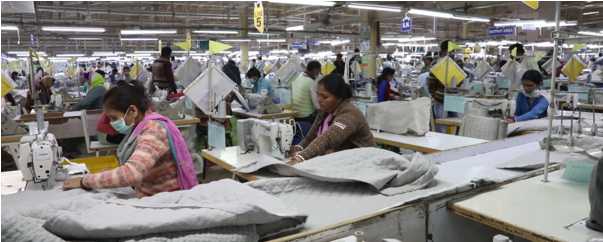INP-WealthPk
Muhammad Saleem
The Punjab Women Development Department has selected around 2,500 rural women for hands-on training in various textile-related fields, with the government committed to ensuring employment opportunities for the trained women within their own cities. Briefing members of the Punjab Assembly, Additional Secretary of the Women Development Department (WDD) Faiza Ahsan said that under the She Threads program, women will be linked with different textile industries where they will receive practical, on-site training.
She added that once training is completed, immediate efforts will be made to secure their employment in the same locations. She further noted that the Punjab Skills Development Fund (PSDF) is the executing partner for the initiative. WDD Secretary Dr. Usman Ali told the meeting that the most important outcome—described as the program’s core “punch line”—is to ensure the employability of the 2,500 women. The program focuses on developing textile-sector skills, and the selected women will receive on-premises training in around 29 textile trades.
Parliamentary Secretary for Women Development Salma Saadia said that the chief minister wants the program to follow the Bangladesh model, where more than 3.4 million women are employed in the textile sector. She added that the CM wants women in Punjab to acquire diverse skills and contribute to the province’s key export industry. She emphasized that She Threads differs from the Garment City program of the Industry Department, which focuses mainly on training machine operators. “Under the Benazir Scheme Program, the government distributes billions of rupees to deserving people.
By financially assisting them in this way, we are turning these women into beggars instead of empowering them,” she said. She explained that the WDD program teaches more than 24 trades, including dyeing, stitching, quality control, and floor management. It targets low- and middle-income women who might otherwise rely on domestic labor. To help them participate, the program offers pick-and-drop services and financial incentives to support household expenses during the training period. She said that job security at the training locations will be ensured immediately upon completion of training.
Dr. Ali noted that the project is past the conceptual stage and all agreements have been finalized. Five locations—Faisalabad, Multan, Sheikhupura, Sialkot, and Lahore—have been selected for contract signing, and classes are scheduled to begin on December 10. He added that contracts were awarded through a competitive bidding process, with major industry players such as Interloop, Kohinoor, Asgard Lahore, Shahkam, and Master among the winners.
He also noted that the financial outlay for She Threads for the current fiscal year (FY 2025–26) is Rs150 million. Due to the limited allocation and strong industry demand—each industry requesting 600 trained women—the department plans to conduct a third-party evaluation by the end of the fiscal year. He added that the WDD intends to seek a higher allocation for the program in the next Annual Development Program (ADP).

Credit: INP-WealthPk













